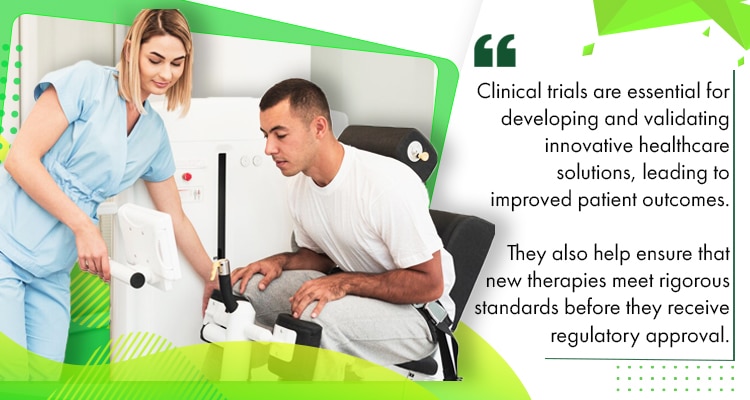AU’s healthcare system is arguably one of the best in the world. The government provides affordable health care for all its citizens, contributing to Australia’s higher life expectancy compared to other countries.
It also has an impressive biotechnology industry, spanning across health, agriculture, marine, industrial, and environmental sectors. Combined, healthcare and biotechnology improve the lives of millions of Australians and are considered one of AU’s most profitable industries.
The Current Landscape of Healthcare in Australia
According to the Australian Government’s Department of Health and Aged Care, the country’s health landscape has four tiers:
- Determinants of health and other demographic factors;
- Health promotion and disease prevention;
- Primary health and community care; and
- Specialist, acute, and residential care.
These tiers represent how the Australian government, healthcare industry, and other stakeholders work together to improve the health and aged care system.
Public and Private Healthcare Systems

The AU government provides high-quality care for its population through Medicare, Australia’s universal health insurance. This provides access to medical services like general practitioner visits, hospital care, and various outpatient services to citizens and permanent residents.
AU’s healthcare landscape is further characterised by a blend of public and private systems. In addition to Medicare, the private healthcare sector provides patients with access to private hospitals, their preferred doctors, and shorter waiting times.
Moreover, the government encourages its citizens to avail private health insurance through incentives and rebates. This reduces the burden on the public healthcare system, enhancing the overall healthcare efficiency.
Key Healthcare Challenges
Despite its robust and advanced healthcare system, Australia faces several challenges in healthcare, such as:
- Rising Cases of Chronic Diseases – A growing number of Aussies have chronic diseases like diabetes, heart disease, and mental health conditions. This places a substantial burden on healthcare resources, straining both public and private healthcare sectors.
- Healthcare Disparity – Australians living in rural regions have limited access to specialist care and advanced medical treatments services compared to urban residents. This results in poorer health outcomes for rural populations.
- Aging Population – Australia’s population has grown older, with a median age of 38.3 years as of June 30, 2023. This demographic shift increases the demand for aged care facilities, long-term care services, and geriatric care.
Impact of Technology on Healthcare

Technological advancements in healthcare play an important role in Australia’s healthcare system. My Health Record, for instance, stores all patients’ health information in a secure digital system.
Electronic health records (EHRs) enable seamless communication among healthcare providers, ensuring coordinated care with reduced errors.
In addition, advanced medical technologies such as imaging systems, robotic surgery, and precision medicine have enhanced patient care. These innovations result in more accurate diagnoses, personalised treatment plans, and minimally invasive procedures.
Moreover, artificial intelligence (AI) has also transformed the healthcare industry’s decision-making process. Today, AI algorithms can analyse vast amounts of data and identify patterns and predict health trends.
Overview of the Biotechnology Sector in Australia
Australia’s biotechnology sector also plays a crucial role in its economy and health landscape.
It’s renowned for innovative research and development, particularly in medical devices, pharmaceuticals, agricultural biotech, and environmental biotech. Australia also has world-class research institutions, universities, and biotech companies collaborating on different projects.
The AU government supports these initiatives by providing incentives such as the Medical Research Future Fund (MRFF) and the Research and Development Tax Incentive. These biotech research grants provide substantial funding for biotech research and innovation, fostering a dynamic and competitive environment.
Major Biotech Companies and Startups
AU-based biotech companies employ over 48,000 Australians in high-value STEM jobs. These include:
- CSL Limited – CSL is a renowned biotech company developing treatments for serious diseases, focusing on biopharmaceuticals and plasma protein therapeutics.
- Cochlear Limited – Meanwhile, Cochlear pioneers implants as hearing solutions, transforming the lives of people with hearing impairments worldwide.
- ResMed – ResMed, on the other hand, is the leader in non-invasive ventilation, sleep apnea therapy, and sleep disorder treatments.
- Bionomics – This startup company focuses on developing novel treatments for central nervous system disorders like Alzheimer’s disease and anxiety.
- Clinuvel Pharmaceuticals – Clinuvel is a startup advancing dermatology by developing treatments for severe skin disorders.
Innovations and Breakthroughs
Australia’s biotechnology sector boasts the following significant advancements:
- Personalised Medicine – AU researchers and companies are at the forefront of developing targeted therapies based on individual genetic profiles.
- Diagnostic Tools – They also have tools and imaging technologies for early disease detection and monitoring, enabling timely interventions.
- Agricultural Biotechnology – The biotech sector also made developments in crop improvement and pest resistance, helping develop drought-resistant crops and improve food security.
- Regenerative Medicine – There are also advancements in cell therapy, exploring new ways to treat spinal cord injuries to heart diseases.
Collaboration Between Healthcare and Biotech
Biotech companies often work with healthcare providers to conduct clinical trials.
They test the safety and effectiveness of new drugs, medical devices, and treatments. This collaboration helps convert scientific discoveries into practical benefits for Australian patients.
Moreover, joint ventures between healthcare providers and biotech companies improve personalised medicine and diagnostics, leading to better patient care. This drives progress in medical science and benefits the health of Australians.
Clinical Trials in Australia

With Australia’s highly favorable regulatory environment, healthcare and biotechnology sectors continue to push the boundaries for new treatments and technologies. Furthermore, AU’s diverse population and advanced medical infrastructure makes it an ideal setting for global medical advancements.
Importance of Clinical Trials
Clinical trials provide a structured and systematic approach for evaluating new drugs and treatments before they reach the market.
Thus, AU clinical trials follow rigorous standards to ensure that innovations meet the government’s high threshold for safety and effectiveness. They also abide by ethical standards for patient welfare, ensuring high levels of transparency and integrity.
Successful trials lead to new treatments and technologies, greatly improving patient care and health outcomes in Australia. The country also invests in global research, reinforcing its position as a leader in medical innovation.
Major Clinical Trials and Their Impact
The following Australian clinical trials have advanced medical knowledge beyond AU’s geographic borders:
- Australian Diabetes Trial – This major clinical trial by Australia’s St. Vincent’s Institute has greatly influenced treatment guidelines in diabetes. It provided valuable insights into more effective diabetes care strategies, contributing to improved patient outcomes and personalised care.
- SPARTAN Study – Meanwhile, this prostate cancer research evaluated the effectiveness of a new drug in preventing disease progression, leading to the drug’s approval and integration into standard treatment regimens.
- PREVAIL Study – The PREVAIL Study, on the other hand, has helped prostate cancer treatments advance, leading to better survival rates and slower disease progression.
Challenges and Opportunities in Clinical Research
As with AU’s healthcare industry, there are also clinical research challenges and opportunities, such as:
Challenges
- Complexity of Regulatory Requirements – Administrative processes can delay the start and completion of clinical trials, delaying the development of new drugs and treatments.
- Recruitment and Retention of Participants – It’s also difficult to attract enough qualified participants, especially for rare diseases and conditions with strict criteria.
Opportunities
- High-Quality Research Institutions – Australia’s well-established medical infrastructure provides a solid foundation for clinical research. The government also provides healthcare funding programs and incentives to foster a robust research ecosystem.
- Healthcare-Biotech Collaboration – Healthcare providers, universities, and other sectors work together on innovative trials and discoveries, driving major advancements in medical science in the country.
Government and Policy Initiatives
The Australian government supports biotech startups and healthcare providers through various funding programs and policies.
The National Health and Medical Research Council (NHMRC), for instance, funds research and sets standards for medical research ethics. Moreover, AU government agencies also encourage collaboration between research institutions, industry players, and healthcare providers.
Federal and State Healthcare Policies
The following policies help provide a supportive environment for healthcare and biotechnology innovation:
- Medical Research Future Fund – The MRFF is a key federal initiative that invests in medical research projects and innovative health to develop new treatments, improve health services, and enhance disease prevention strategies.
- Public Health Programs – State governments implement region-specific programs such as vaccination campaigns, chronic disease management, and health education initiatives.
- Collaborative Initiatives – Both federal and state governments also promote partnerships between research institutions and healthcare providers to improve patient care.
Funding and Grants for Biotech Research
There are also funding sources that support biotech research in Australia. These include:
- Research and Development Tax Incentive – This federal program offers rebates to biotech companies investing in research and development, encouraging innovation.
- Australian Research Council (ARC) – The ARC offers funding schemes like Linkage Projects and Discovery Projects to encourage collaboration between researchers and industry partners.
- Venture Capital and Private Investment – Aside from government funding, the Medical Research Commercialisation Fund (MRCF) supports early-stage biotech companies, helping them move from research to commercialisation.
Regulatory Framework and Compliance
Australia protects public health and biotech innovations with a comprehensive regulatory framework, including:
- Therapeutic Goods Administration (TGA) – The TGA is the main regulatory body overseeing the approval and monitoring of biologics, medical devices, and medicines.
- Australian Pesticides and Veterinary Medicines Authority (APVMA) – They regulate agricultural and veterinary chemicals to protect public health, animals, and the environment. They also assess and approve products and monitor compliance.
- Ethics Committees and Institutional Review Boards (IRBs) – These committees review and approve research proposals to ensure they meet regulatory requirements and ethical standards.
The Role of Universities and Research Institutions

Institutions like the University of Melbourne and the Garvan Institute of Medical Research conduct advanced research, develop new treatments, and train future scientists and healthcare professionals.
They also work with industry partners and government institutions to apply their research findings in practical ways.
Contributions to Biotech Research
Australian universities drive innovation and improve healthcare through:
- Collaborative Research – Universities partner with biotech companies to address health challenges and advance research using their expertise and resources.
- Training and Development – Educational institutions also provide specialised programs and research opportunities for the next generation of scientists, researchers, and healthcare professionals.
- Innovation and Discovery – Research institutions conduct fundamental research that leads to discoveries in bioinformatics, genomics, and molecular biology.
Partnership with Industry
Educational institutions work with industry players to develop and commercialise new technologies, advancing healthcare and improving patient outcomes. These include:
- Industry-Sponsored Research – Biotech companies fund academic research to explore specific areas, bridging the gap between basic research and practical applications.
- Clinical Trials and Testing – Research institutions work with industry partners to conduct clinical trials and test new therapies, ensuring treatments are rigorously tested and validated.
- Technology Transfer and Licensing – Universities and research institutions have transfer offices that work with biotech companies for patenting, licensing, and commercialising new technologies.
Key Research Projects and Their Impact
The following are groundbreaking research that translated into practical applications:
- The University of Queensland’s Vaccine Research – Researchers at the University of Queensland developed innovative vaccines for malaria and COVID-19.
- The Murdoch Children’s Research Institute’s Pediatric Research – The Institute’s research has greatly contributed to diagnostic tools and therapies for pediatric genetic disorders, infectious diseases, and developmental health issues.
- The Florey Institute’s Neurological Research – The Florey Institute researches Alzheimer’s and Parkinson’s diseases, uncovering their mechanisms and developing new treatments.
Future Trends and Opportunities

AU’s healthcare and biotechnology industry is shaped by emerging trends and opportunities. For example, AI and machine learning have sped up research and improved clinical outcomes.
Meanwhile, innovations in digital health, like telemedicine and wearable technologies, will enhance remote patient monitoring and accessibility, driving future growth and innovation.
Emerging Technologies in Healthcare and Biotech
The following emerging technologies help position Australia as a global leader in medical research and biotechnology:
- Regenerative Medicine – AU institutions are developing stem cell therapy and tissue engineering to repair or replace damaged tissues and organs, offering new treatments for conditions like spinal cord injuries and heart disease.
- Bioprinting – This involves 3D-printing tissues and organs for transplantation and testing, reducing the need for organ donors.
- Artificial Intelligence and Machine Learning – Aussie researchers use AI to analyse complex biological data, find new drug candidates, and create predictive models for disease diagnosis and treatment.
Potential Growth Areas
Australia can further strengthen its global leadership in medical research and technology through these growth areas:
- Genomic Medicine – Advancements in genome sequencing and bioinformatics promises to revolutionise personalised medicine, improving outcomes for rare genetic disorders.
- Biotech Startups and Innovation Hubs – Australia’s thriving startup ecosystem supports biotech growth with resources, mentorship, and funding opportunities.
- Sustainable Biotech Practices – There’s been a growing emphasis on sustainable biotech practices, revealing a commitment to environmental responsibility and innovation.
Strategies for Sustainable Development
The following strategies ensure that Australia’s healthcare and biotech sectors grow innovatively and responsibly:
- Promoting Green Technologies – Healthcare providers and biotech companies can adopt eco-friendly lab practices and use renewable energy. This helps lower the environmental impact of research and production, supporting sustainability goals.
- Supporting Circular Economy Practices – They can also create biotech products and processes that reduce waste and use resources efficiently, such as biodegradable materials systems for reusing by-products.
- Implementing Sustainable Health Policies – The AU government can integrate sustainability into health policies and regulations. This includes setting standards for environmental responsibility in healthcare facilities and biotech industries.
FAQs
Here are some of the most frequently asked questions about Australia’s healthcare and biotechnology industry:
Question #1: What is the Role of Clinical Trials in Australian Healthcare?

Clinical trials are essential for developing and validating innovative healthcare solutions, leading to improved patient outcomes.
They also help ensure that new therapies meet rigorous standards before they receive regulatory approval.
Question #2: Which Australian Universities are Leading in Biotech Research?
The University of Melbourne is renowned for its strong focus on biotechnology and its work on genomics, cancer research, and regenerative medicine.
Meanwhile, Monash University excels in drug discovery, cancer research, and immunology, contributing to both fundamental and applied sciences.
Lastly, the University of Sydney is a key player in biotech research, leading innovative studies in metabolic and cardiovascular diseases and personalised medicine.
Question #3: How Do Public and Private Healthcare Systems Differ in Australia?
Australia’s public healthcare system offers free or subsidised services for all residents, including hospital care, medical consultations, and pharmaceuticals.
Meanwhile, private health insurance and out-of-pocket payments offer faster access to elective procedures and a wider choice of healthcare providers.
In other words, the public system provides equal access to essential health services, while the private system offers more choices for those who can afford these.
Conclusion
AU’s healthcare and biotechnology industry thrives thanks to robust clinical trials, strong government support, and innovative research.
Today, the country Down Under is a global leader in healthcare and biotech advancements, promising a healthier future for all Australians.
With the help of outsourcing providers like Remote Staff, healthcare providers have access to skilled remote work professionals to make patient care easier than ever. Find out more here.
Syrine is studying law while working as a content writer. When she’s not writing or studying, she engages in tutoring, events planning, and social media browsing. In 2021, she published her book, Stellar Thoughts.




















